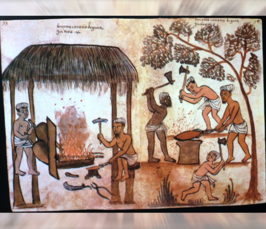Norms and Empires Lecture Series: Local normativity and the Portuguese imperial order. The case of Goa in the 16th and 17th centuries
Norms and Empires Lecture Series
- Datum: 03.12.2019
- Uhrzeit: 17:00 - 19:00
- Vortragende(r): Prof. Dr. Ângela Barreto Xavier (Instituto de Ciências Sociais, Universidade de Lisboa)
- Organisation: Thomas Duve, Manuel Bastias Saavedra (MPIeR)
- Ort: MPIeR
- Raum: Vortragssaal des MPI

How did Portuguese imperial agents perceive and appropriate the norms and institutions that operated in the territories of Goa at the time of their arrival? What was the template they used as a guide to their relationship with the inhabitants of Goa? What does this template tell us about the local order?
In order to answer to these questions, this presentation is divided into two parts.
In the first part, I will focus on the production of the Foral de Mexia of 1526, a compilation of local rules that frequently has been considered a precocious Code of Uses and Customs of Goan populations. Its relevance was so high that from the 19th century onwards, the Foral came to play a crucial role in the imagining of a Goan community – to use Benedict Anderson’s insightful expression – and in the reinforcement of the political distinctiveness of Goa, even in its post-colonial context. In the absence of direct documents to reconstruct the local normativity before the 16th century, the Foral de Mexia, a partial and reduced selection of the norms that governed the local communities, became the best way to access their forms of organisation. Produced in a period when the Portuguese related to Asian societies following the same principles that had governed the relationship between the Crown and the Jewish and Muslim communities in the medieval kingdom, the Foral de Mexia only assembled, however, what their producers (local elites included) found useful at that particular moment. Bearing that in mind, my aim in this first part is to demonstrate three things: the gap that existed between the Foral and the norms that actually governed the local order (by looking at the early modern appropriation of Indian classical law in South India); that the fixation of rules in the Foral de Mexia entailed eventual changes in this local order; the ways in which the Foral shaped the relationship between the local communities and the Portuguese imperial order at the moment of its production.
In the second part, I will concentrate on the changes in the local order that took place as a result of the reception of the Foral de Mexia by analysing its uses during the period when the Goan populations were systematically persuaded to convert to Christianity (c. 90% of the population in 1720). Through the equivalence between generatio (birth) and regeneratio (baptism), the majority of Catholic Goans became theoretically legally equivalent to the Portuguese, and therefore subjected in the public and private matters to the Portuguese law. In this scenario, it is still not clear, however, which previous ‘uses and customs’ were still acceptable in the new order, and the role played by the Foral de Mexia in this new conjuncture. By observing its uses by the locals and by the Portuguese, my main aim in this second part is to inquire about the persistence of the local order (and which local order), as well as the limits of the Portuguese imperial power when trying to conform to it.